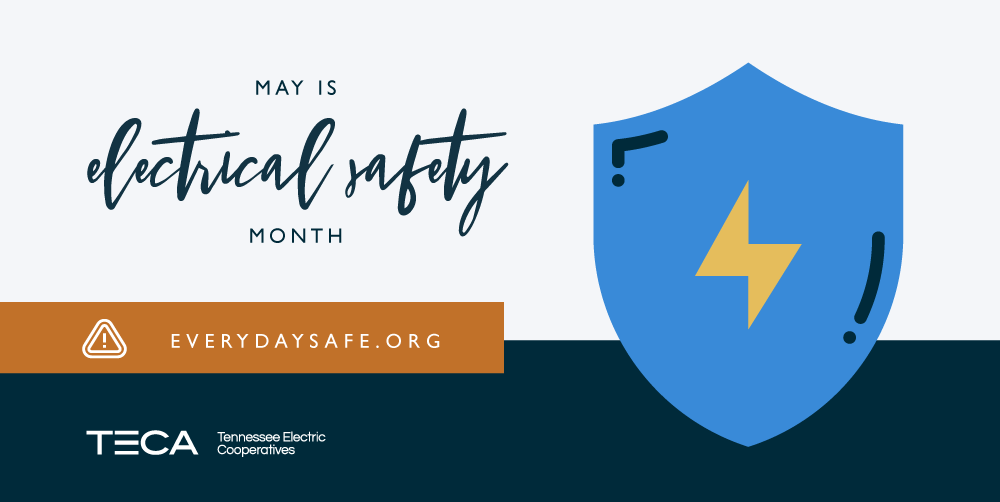With nicer weather here and the hot days of summer just a few weeks away, now is a great time to take a look around the outside of your home to identify electrical safety hazards. Winter can be tough on your home’s exterior. It’s better to make repairs now before you and your family begin spending more time outside this summer. Here are a few things to check.
Inspect exterior outlets and switches
Look for visible damage to exterior receptacles and switches. Be on the lookout for discolored receptacles, which could be a sign of faulty wiring. Replace old outlets with GFCI outlets to reduce the risk of electrical shock, and be sure that any exterior outlets have covers to protect them from the elements. For receptacles near lakes, pools or hot tubs, take extra care to be sure that GFCI outlets are used and that equipment is properly grounded. Call an expert if you have any questions.
Check exterior lighting fixtures
Did winter storms damage your exterior light fixtures? Look for visible damage, and replace any bulbs that are not working. Replacing light fixtures can be a DIY job, but it could also be dangerous if you don’t know what you are doing. Consider hiring a professional if you’re not sure.
Clear space around exterior equipment
Be sure that plants and shrubs have not grown too close to heating and cooling equipment, which needs proper clearance for air to circulate properly. Also, be sure that exterior fixtures like electric and gas meters and underground transformers can be easily accessed. Look for vegetation that has grown into overhead power lines. Never trim trees or shrubs near power lines. Contact your local electric co-op for assistance.
Clean vents and filters
Check exterior HVAC equipment for dust and debris on coils and around vents. Follow the manufacturer’s instructions to clean them, or hire a professional. Also be sure that dryer vents are clear of lint or other debris.
These simple tips can ensure that your family is safe when warm weather returns.



